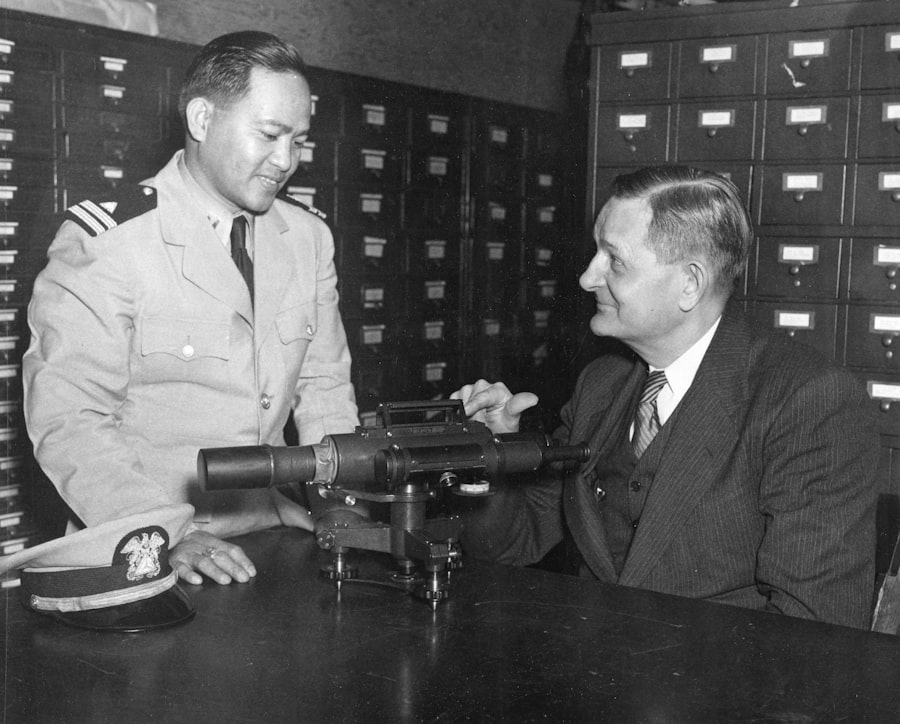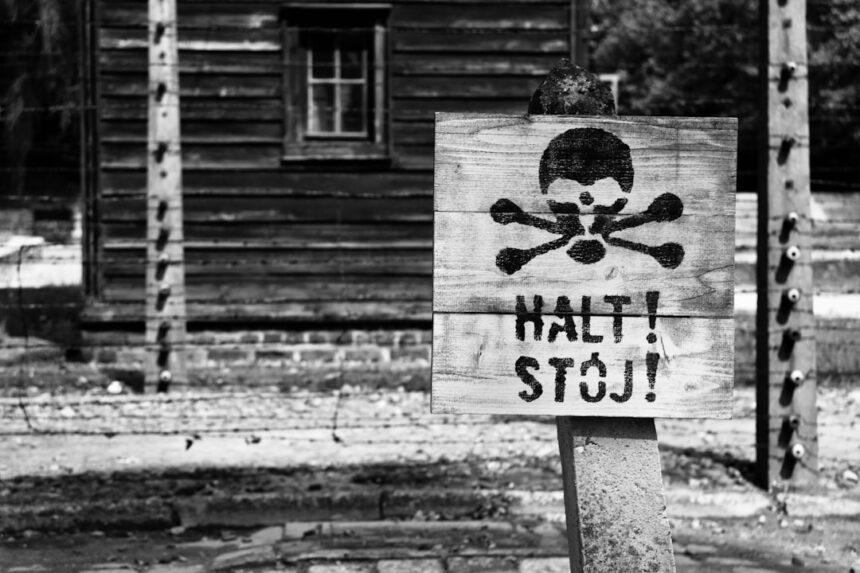Nazi espionage during World War II represented a critical component of the broader conflict, as intelligence gathering and covert operations played pivotal roles in shaping military strategies and outcomes. The Third Reich, under Adolf Hitler, recognized the importance of infiltrating enemy territories to gather vital information, disrupt supply lines, and sow discord among adversaries. This clandestine warfare extended beyond Europe, reaching into the heart of the United States, where the potential for espionage activities posed a significant threat.
The intricate web of spies, informants, and saboteurs aimed to undermine American efforts in the war, making the study of these operations essential for understanding the era’s geopolitical landscape. The United States, initially isolated from the European conflict, became increasingly aware of the dangers posed by Nazi agents. As the war progressed, the fear of infiltration grew, leading to heightened security measures and counterintelligence efforts.
The narrative of Nazi espionage is not merely a tale of spies and secrets; it is a reflection of the broader anxieties that permeated American society during this tumultuous period. The story of how these agents sought to penetrate American soil, particularly in strategic locations like Florida, reveals much about the lengths to which the Nazis would go to achieve their objectives.
Key Takeaways
- Nazi espionage during World War II aimed to gather intelligence and disrupt the war efforts of the Allied powers.
- The historical context of Nazi attempts to infiltrate the United States was influenced by the country’s neutrality and strategic importance.
- Florida’s geographic location made it a potential target for Nazi spies to land and carry out espionage activities.
- Evidence and reports of Nazi espionage activities in Florida included intercepted communications and suspicious activities by individuals.
- Florida’s geography and infrastructure, including its coastline and ports, made it vulnerable to potential Nazi spy landings.
Historical context of Nazi attempts to infiltrate the United States
The historical context surrounding Nazi attempts to infiltrate the United States is rooted in a complex interplay of ideology, military strategy, and geopolitical ambition. As World War II unfolded, the Nazis sought to expand their influence beyond Europe, viewing America as both a potential ally and a formidable adversary. The rise of fascism in Europe and the subsequent entry of the United States into the war in 1941 heightened the urgency for Nazi intelligence operations.
The Third Reich aimed to exploit any weaknesses within American society and government structures, believing that espionage could provide them with a strategic advantage. In this context, various methods were employed by Nazi operatives to infiltrate American territory. These included sending spies disguised as ordinary citizens, establishing networks of sympathizers, and utilizing advanced technology for communication and coordination.
The Nazis understood that successful espionage required not only gathering intelligence but also creating chaos and confusion among their enemies. This led to a series of covert operations aimed at sabotaging American war efforts, disrupting supply chains, and even inciting unrest within communities sympathetic to their cause.
The possibility of Nazi spies landing in Florida

Florida’s geographical position made it an attractive target for Nazi espionage activities during World War
With its extensive coastline and proximity to both the Caribbean and South America, Florida offered numerous opportunities for clandestine landings and operations. The state’s warm climate and tourist-friendly environment provided cover for spies who could easily blend in with the local population. Moreover, Florida’s strategic military installations, such as naval bases and airfields, made it a focal point for intelligence gathering.
| Data/Metrics | Description |
|---|---|
| Coastline | Extensive coastline providing opportunities for clandestine landings |
| Proximity | Located close to the Caribbean and South America |
| Climate | Warm climate providing cover for spies |
| Tourist-Friendly Environment | Allows spies to easily blend in with the local population |
| Military Installations | Presence of strategic naval bases and airfields |
| Intelligence Gathering | Florida serves as a focal point for intelligence operations |
The possibility of Nazi spies landing in Florida was not merely theoretical; it was a genuine concern for American intelligence agencies.
Reports indicated that German U-boats patrolled the waters off Florida’s coast, seeking opportunities to deploy agents onshore.
This potential for infiltration raised alarms within U.S. military and intelligence circles, prompting increased vigilance along Florida’s borders.
Evidence and reports of Nazi espionage activities in Florida
Throughout World War II, there were numerous reports and pieces of evidence suggesting that Nazi espionage activities were indeed taking place in Florida. One notable incident involved the capture of German saboteurs who had successfully landed on American soil. In 1942, a group known as Operation Pastorius attempted to carry out sabotage missions against key industrial targets in the United States, including locations in Florida.
Their plan was thwarted when one member of the group turned informant, leading to arrests and trials that revealed the extent of Nazi espionage efforts. Additionally, local law enforcement agencies reported suspicious activities that hinted at espionage operations. Citizens observed unusual gatherings and individuals who seemed out of place in their communities.
These reports often led to investigations by federal agencies such as the FBI, which worked tirelessly to uncover potential threats. The combination of captured spies, informant tips, and public vigilance painted a picture of an active espionage landscape in Florida during this period.
The role of Florida’s geography and infrastructure in potential Nazi spy landings

Florida’s unique geography played a significant role in facilitating potential Nazi spy landings during World War
The state’s extensive coastline, dotted with numerous inlets and bays, provided ample opportunities for clandestine landings by submarines or small boats. The warm climate allowed for year-round operations, making it an ideal location for spies seeking to establish a foothold in America. Furthermore, Florida’s diverse terrain included swamps, forests, and urban areas that could serve as hiding places for operatives.
The infrastructure within Florida also contributed to its appeal as a target for espionage activities. Major cities like Miami and Jacksonville were not only bustling urban centers but also hubs of transportation and communication. This connectivity allowed spies to move quickly between locations and access critical resources.
Additionally, military installations scattered throughout the state presented opportunities for gathering intelligence on American defense strategies. The combination of geography and infrastructure created a perfect storm for potential Nazi infiltration.
In response to the growing threat of Nazi espionage in Florida, the U.S.
Federal agencies such as the FBI ramped up their surveillance efforts, monitoring suspicious activities and individuals within communities across the state.
This included establishing networks of informants who could provide valuable information about potential threats. Moreover, public awareness campaigns were launched to educate citizens about the signs of espionage and encourage them to report any suspicious behavior. The government recognized that grassroots vigilance was essential in combating espionage efforts effectively.
Local law enforcement agencies collaborated with federal authorities to create a united front against potential threats, ensuring that any signs of Nazi activity were swiftly investigated.
The impact of Nazi espionage on Florida’s local communities
The specter of Nazi espionage had a profound impact on local communities throughout Florida during World War
As fears of infiltration grew, residents became increasingly vigilant about their surroundings. Neighborhood watch groups emerged as citizens banded together to keep an eye out for suspicious activities or individuals who did not seem to belong. This heightened sense of awareness fostered a spirit of community solidarity but also created an atmosphere of paranoia.
Additionally, the presence of federal agents conducting investigations often disrupted daily life in these communities. Residents found themselves subjected to increased scrutiny as law enforcement agencies sought to uncover potential threats. While many understood the necessity of these measures in light of national security concerns, others felt uneasy about living under constant surveillance.
The tension between security needs and personal freedoms became a defining characteristic of life in Florida during this period.
The legacy of Nazi espionage in Florida and its impact on national security
The legacy of Nazi espionage activities in Florida extends far beyond World War II; it has had lasting implications for national security policies in the United States. The experiences gained from countering these threats informed future intelligence operations and shaped how government agencies approached issues related to espionage and sabotage. Lessons learned during this time led to the establishment of more robust counterintelligence frameworks designed to protect against foreign infiltration.
Moreover, the historical narrative surrounding Nazi espionage has contributed to ongoing discussions about national security in contemporary America. The fear of infiltration by foreign agents remains relevant today as new threats emerge in an increasingly interconnected world. Understanding how past events shaped current policies allows policymakers to develop more effective strategies for safeguarding national interests while balancing civil liberties.
Comparisons with other potential Nazi spy landings in the United States
While Florida was a focal point for Nazi espionage activities during World War II, it was not the only state targeted by German operatives seeking to infiltrate American territory. Other coastal states such as California and New York also faced similar threats due to their strategic importance and proximity to key military installations. Each region presented unique challenges and opportunities for spies attempting to carry out their missions.
Comparing Florida’s experiences with those of other states reveals common themes in Nazi espionage tactics—such as utilizing local sympathizers or exploiting geographical advantages—but also highlights regional differences influenced by local demographics and infrastructure. For instance, while California’s vast coastline offered numerous landing sites for submarines, New York’s dense urban environment posed distinct challenges for covert operations.
Modern perspectives on the likelihood of Nazi spies landing in Florida
In contemporary discussions about national security threats, the likelihood of Nazi spies landing in Florida may seem like a relic from history; however, it serves as a reminder that vigilance is always necessary against foreign infiltration. Modern intelligence agencies continue to monitor potential threats from various sources—be they state-sponsored actors or non-state entities—drawing parallels between past experiences and current challenges. While the specific context has changed dramatically since World War II, lessons learned from that era remain relevant today as nations grapple with issues related to cybersecurity, terrorism, and espionage on multiple fronts.
Understanding how historical events shaped current policies allows for more informed decision-making regarding national security strategies moving forward.
Understanding the historical significance of Nazi espionage in Florida
The historical significance of Nazi espionage in Florida during World War II cannot be overstated; it serves as a crucial chapter in understanding both the complexities of wartime intelligence operations and their lasting impact on national security policies today. By examining how these activities unfolded within specific geographic contexts like Florida—marked by its unique geography and infrastructure—one gains insight into broader themes related to foreign infiltration and domestic vigilance. As modern societies continue to navigate an ever-evolving landscape filled with new threats from abroad, reflecting on past experiences provides valuable lessons that can inform future strategies for safeguarding national interests while preserving civil liberties.
Ultimately, recognizing the historical significance of events like Nazi espionage helps ensure that societies remain vigilant against potential threats while fostering resilience against those who seek to undermine democratic values from within or without.
During World War II, the United States faced numerous threats, including the possibility of Nazi spies landing on American soil. One intriguing aspect of this history is the alleged landing of Nazi spies in Florida, a topic that has sparked much debate and interest. For those interested in exploring this subject further, an article on the broader context of espionage during the war can be found on the website “In The War Room.” This article delves into various espionage activities and their impact on the war effort. To read more about these historical events, you can visit the article by clicking on this link.
WATCH THIS! 😱The Nazi Trial America Never Wanted You To See 😱
FAQs
What is the article about?
The article discusses the possibility of Nazi spies landing in Florida during World War II.
Is there evidence of Nazi spies landing in Florida?
There is no concrete evidence to support the claim that Nazi spies landed in Florida during World War II. The article explores the rumors and speculation surrounding this topic.
What is the historical context of the claim?
During World War II, there were concerns about potential enemy infiltration on American soil. This led to various rumors and reports of espionage activities, including the alleged landing of Nazi spies in Florida.
How reliable are the sources discussing this topic?
The sources discussing the alleged landing of Nazi spies in Florida vary in reliability. Some are based on eyewitness accounts and historical records, while others may be more speculative or sensationalized.
What impact did these rumors have during World War II?
The rumors of Nazi spies landing in Florida added to the atmosphere of fear and suspicion during World War II. They contributed to the heightened security measures and public vigilance at the time.
Is there any conclusive evidence to confirm or debunk the claim?
As of now, there is no conclusive evidence to either confirm or debunk the claim that Nazi spies landed in Florida during World War II. The topic remains a subject of historical debate and speculation.




